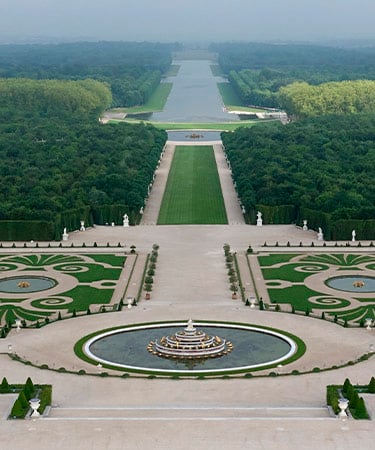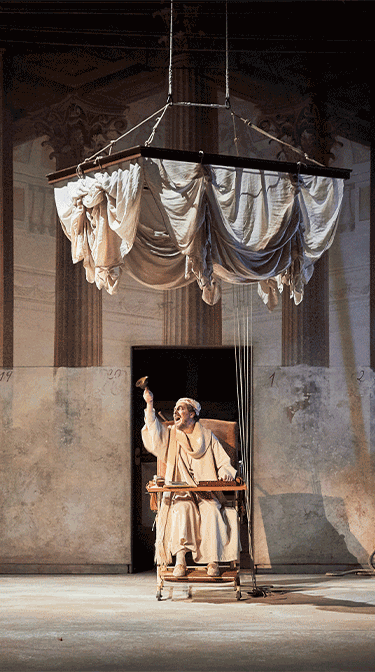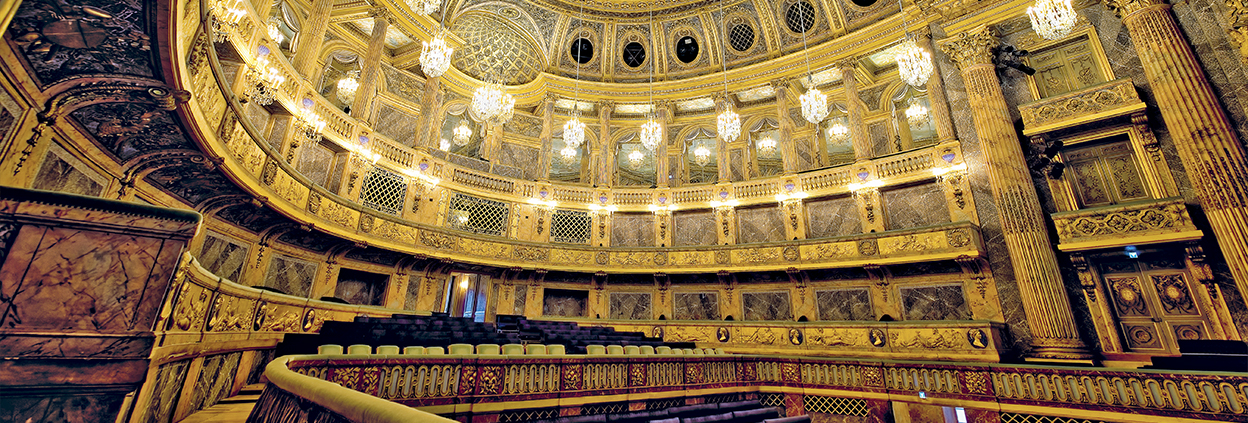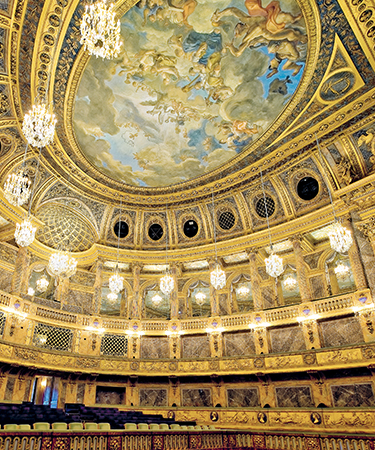Cast
With the troupe of the Comédie-Française
Alain Lenglet Béralde
Coraly Zahonero Béline
Guillaume Gallienne Argan
Julie Sicard Toinette
Christian Hecq M. Diafoirus and M. Purgon
Yoann Gasiorowski Cléante
Elissa Alloula Angélique
Clément Bresson Thomas Diafoirus, M. Bonnefoy, and M. Fleurant
Mathilde Clément, Elisa Cronopol, and Alice Javary Louison (alternating)
Élodie Fonnard Soprano
Étienne de Bénazé Tenor
Jean-Jacques L’Anthoën Bass-baritone
Jorris Sauquet Harpsichord
Claude Stratz Director
Ezio Toffolutti Set and Costume Design
Jean-Philippe Roy Lighting Design
Marc-Olivier Dupin Original Music
Sophie Mayer Choreography
Kuno Schlegelmilch Makeup, Wigs, and Prosthetics
Marie-Pierre Héritier Assistant Director
Angélique Pfeiffer Assistant Set Designer
Laurence Aué and Élisabeth Doucet Assistant Makeup and Prosthetics
Presentation
“The last play of Molière begins in the hues of a fading day. It is a twilight comedy tinged with bitterness and melancholy.” These words, spoken by the late Claude Stratz, describe Le Malade imaginaire, which he directed in 2001. Played over 500 times since then, it has become one of those timeless productions performed by generations of actors from the troupe. The minimalist direction brings out the infinite range of this comedy-ballet. On February 10, 1673, Molière, in the role of Argan, premiered his new work, which deals with real or fake illness, real or fake doctors, real or fake music masters, and true comedy with dramatic overtones. Seven days later, while performing the fourth show, his pulmonary illness forced him to stop, and he passed away just a few hours later. From then on, it is impossible not to see the shadow of the dying playwright hovering over the character of Argan, who “in his own misfortune chose to make us laugh.” While the quackery of doctors is a recurring theme in Molière’s work, in this satirical farce, it is medical science itself that is attacked, alongside a dark and lucid meditation on the fear of death. Written by a weakened Molière, a victim of Lully’s intrigues, out of favor with the king, and devastated by the deaths of his son and his lifelong friend Madeleine Béjart, his last play is, however, one of his most brilliant comedies.
Production Comédie-Française
This performance is presented with the generous support of Madame Aline Foriel-Destezet
Programme
Comedy-ballet in three acts and in prose, created by the King’s Troupe at the Palais-Royal in Paris in 1673.









 Francais
Francais
 English
English
 support
support


 From Wednesday 13th to Sunday April 17th 2022
From Wednesday 13th to Sunday April 17th 2022





